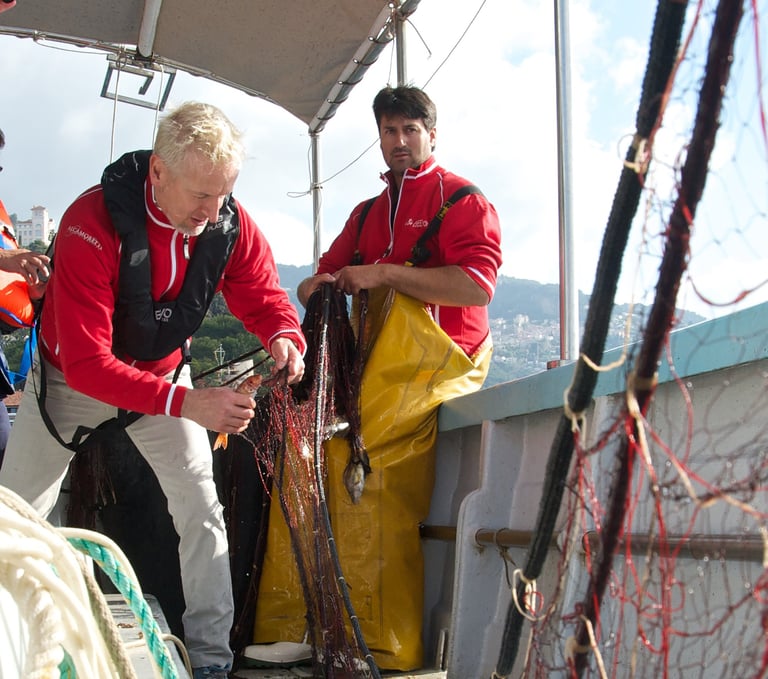“Do not respect our planet means not respecting ourselves. Do not be accomplice in silence. Hand in hand, all together, we can create a better place for the next generation »”
Moné Sari
Planet


In a safe, wise, and broad interpretation of community, oceans represent a crucial asset, acting as sustenance reservoirs through restaurant’s food supply and social basins, ensuring jobs in the industry and the survival of the local economy itself, tourism first of all. Oceans have been severely impacted and devalued by the hospitality industry and human activities, and without a marked change in trend, in 2050, oceans will be populated more by plastic than marine species, and due to its non-biodegradability, plastic will be part of hotel guests diet through the consumption of fish. Besides amending the ethical and moral approach to the problem, the hotel industry should modify the economic system. Global awareness is essential to strengthening the resilience of the oceans, recognising the role of local communities, including the hospitality industry, in protecting marine ecosystems, and proposing artisan and responsible fishing to guarantee the sustainability of marine stocks for an extended period. Indeed, healthy oceans positively impact the economy; clean beaches and waters, intact coral reefs, Eco-friendly resorts, and preserved landscapes are a reason attraction for tourist flows and consequently sustainable economic, social, and environmental resources for local communities and several stakeholders.
Our Oceans
We need to be better inhabitants of the planet, personally and through our industrial activities. Fast food, fast fashion, fast tourism, and fast purchasing lead to excessive consuming and spending, saturating the market and inhibiting any competitive and financial advantage. The hospitality industry is a market not certainly exempt from contributing to the worsening of climate change; boosting tourism as one of the first sources of income, has contributed enormously to increasing the carbon footprint with the related consequences for climate change and hospitality’s social, economic, and environmental sustainability. Moreover, the ease of air transfers has ensured ever greater flows of tourists, with consequences on the environmental and social instability of the local community. Burning forests, lack of snow, unbreathable air, and flood disasters exhort the industry to reconsider the nature of tourism before soliciting the hospitality field to face its current carbon impact. Indeed, hospitality needs to face climate change integrating Ethical, Responsible, and Sustainable measures as social and financial strategies, implementing local circular economies and achieving social and financial competitive advantages. Furthermore, water consumption is higher than nature's recycling capacity, and the food chain blows up 30% of its stocks, with the consequent unsustainability of both rising food prices and the availability of these resources in several tourist sites.
New constraints posed by resources limitation, price increases, ecosystem depletion, and community depletion should encourage hospitality companies to become more resource and costs efficient, refining strategies benefiting the environment, and achieving a consistent intake to the planet. These actions, associated with cost control and consumption reduction policies, renewable resources implementation, employee training, stakeholder involvement, and qualitative improvement of the services offered, will ensure the consolidation of competitive advantage in new and existing markets for a remarkable time period.
Our Planet


